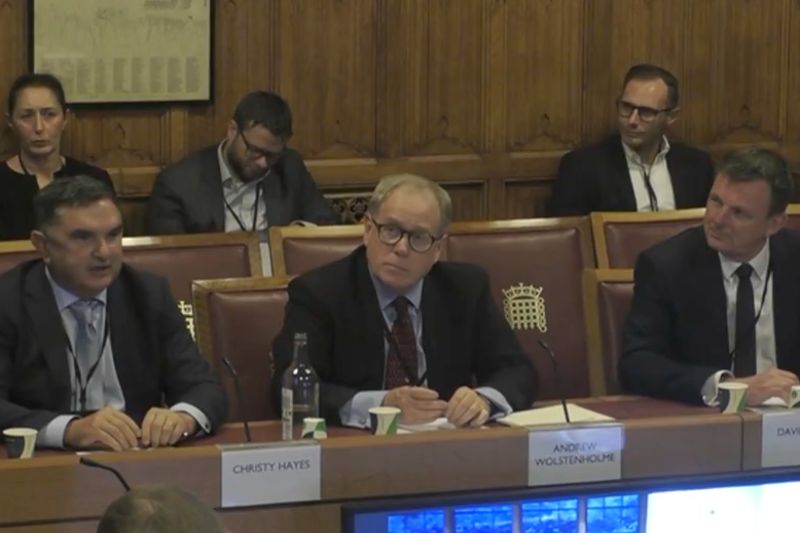Sign up to the Built Offsite Newsletter

Inquiry into MMC failures continues unabated this week with three key modular builders facing the committee.
The next instalment of the UK Government inquiry into the problems facing modern methods of construction (MMC) continued this week. Representatives from three of the UK’s most prominent modular builders were on hand to answer questions from committee members. (main pic: L-R front row. Christy Hayes, Tide Constructions; Andrew Wolstenholme, Laing O’Rourke; David Jones, Elements Europe.)
The cashflow model utilised in government procurement is unsuitable for advancing modern methods of construction (MMC), as stated by senior figures from contracting firms to a Parliamentary committee on November 20.
These industry professionals presented evidence to the House of Lords’ Built Environment Committee, which has initiated an inquiry into the sector’s challenges, following several notable business collapses.
Laing O’Rourke’s Group Technical Director, Andrew Wolstenholme, informed the committee that the “low-cost, competitive-tender system” presently adopted by the public sector is inadequate for fostering MMC.
He remarked, “I do believe that government departments must comprehend that if they wish to procure for value… they cannot persist in transferring risk burdens onto the supply chain, preventing innovations from generating opportunities,” during his committee address.
Wolstenholme emphasised the necessity for clients to embrace alternative methods in designing and financing MMC projects.
“If you’re orchestrating a manufacturing process, then public sector clients shouldn’t be astonished by a differing cashflow,” he further added.
Watch the 20 November instalment of the MMC inquiry HERE
David Jones, Interim Chief Executive of offsite specialist Elements Europe, agreed that clients need to modernise their approach to commissioning MMC work.
He stated, “The extent of advance funding required for manufacturing prior to receiving client payments is what can determine the success or failure of an organisation.”
Jones further attributed the recent failures of modular housebuilders to their emphasis on standardised manufacturing assembly lines, rather than tailoring solutions for clients.
He expressed, “My personal opinion is that it’s consistently challenging to attempt a volume product in a traditional industry.”
Christy Hayes, Chief Executive of offsite specialist Tide Construction, advocated for increased support towards the demand aspect of modular housing construction, rather than its supply aspect.